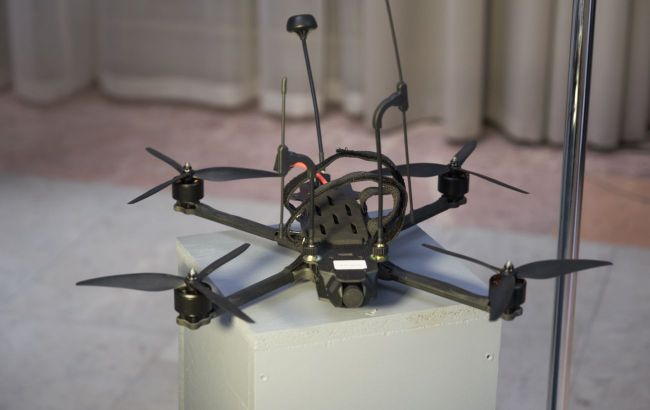Kremlin likely unhappy after Ukraine's Spiderweb operation – NATO
 FPV drones struck Russian airfields (Vitalii Nosach, RBC-Ukraine)
FPV drones struck Russian airfields (Vitalii Nosach, RBC-Ukraine)
Ukraine's Spiderweb operation, which targeted Russian airfields, certainly did not please officials in the Kremlin, said NATO's Director of Nuclear Policy, Jim Stokes.
"It was certainly interesting to observe the results (referring to Operation Spiderweb)," Stokes said. "I don't have detailed data on the operation itself, but it clearly had an impact… You know, if I were sitting in the Kremlin, I definitely wouldn't be happy that several strategic bombers were destroyed or damaged."
According to him, NATO must continue monitoring developments in Russia's war against Ukraine.
Stokes also pointed out that the Russians have been modernizing their strategic nuclear weapons since the 2000s.
"They've upgraded many of their capabilities. I think it still remains to be seen how operational some of them truly are. They've certainly encountered some issues during tests of new systems. We've seen the performance of some of their missiles against Ukraine, and perhaps it hasn't been as effective as many had expected," he added.
NATO's Director of Nuclear Policy believes that Russia still possesses the largest number of warheads of any country. The Alliance continues to monitor Russia's nuclear doctrine and rhetoric closely.
Operation Spiderweb
On June 1, Ukrainian drones struck Russian strategic aviation units based at several airfields.
As a result of the attack, Ukrainian forces managed to hit 41 enemy aircraft. Most of them were strategic bombers that Russia uses to launch missile strikes against Ukraine.
According to recent remarks by the head of the Security Service of Ukraine (SBU), Vasyl Malyuk, Ukrainian forces deployed 117 unique drones equipped with special shaped-charge high-explosive warheads for the strike.

